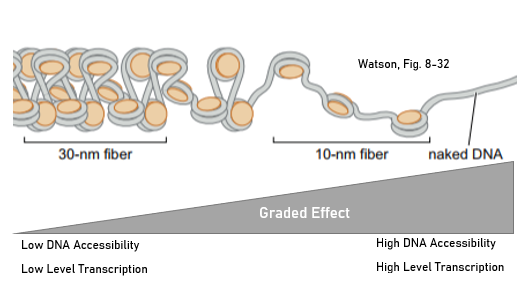Can the stress in your environment affect the genes that your body is expressing? It has been found that in cases of traumatic or chronic stress, this is a possibility. Differential DNA Methylation in Response to Trauma: A THREAD.
Your DNA sequence and the that genes it encodes are stable throughout your lifetime (with the acceptation of possible mutations), but certain epigenetic modifications can change the chromatin state of your DNA.
Your DNAu2019s chromatin state determines which DNA is accessible for transcription. If your DNA is inaccessible to polymerases it cannot be transcribed, translated, or expressed as genes.
DNA methylation (DNAm) is an epigenetic modification which reduces gene expression by reducing DNA accessibility. DNAm occurs with the addition a methyl group atop the DNA sequence.
A typical experiment looking for differential DNAm patterns in response to trauma looks for sites on the DNA where there is a significant difference in the DNAm between trauma exposed individuals and unaffected controls.
In such experiments if has often been found that individuals with PTSD have different patterns of DNAm than individuals without, suggesting that experiencing traumatic stress can affect DNAm patterns.
Limitations in this field of research are that the genes at the sites of differential DNAm often arenu2019t conserved across experiments, creating a lack of replicated findings, and different tissues have differing basal levels of DNAm. Experiments commonly use blood as a (1/2)
tissue sample when intending to apply the findings to brain tissue, the issue here lies in the generalizability of the DNAm data found (2/2).
The identification of the genes implicated in PTSD could garner a better understanding of and better treatments for the disorder.
The identification of the genes implicated in PTSD could garner a better understanding of and better treatments for the disorder.
Another current limitation is that the heritability of PTSD differs depending on sex and ancestry, meaning that diverse samples are required to obtain findings that are generalizable to the general population of people.
The field of epigenetics is relatively new, so even though it has been found that epigenetic modifications occur in response to trauma, how and where have yet to be solidified and problems with measurement have yet to be addressed.
With this being said the implications of epigenetic modifications are huge, and understanding the ways in which they affect gene expression and in tandem behaviors can unlock new realms of treating many biological and psychological disorders.
END OF THREAD
END OF THREAD

 Read on Twitter
Read on Twitter


